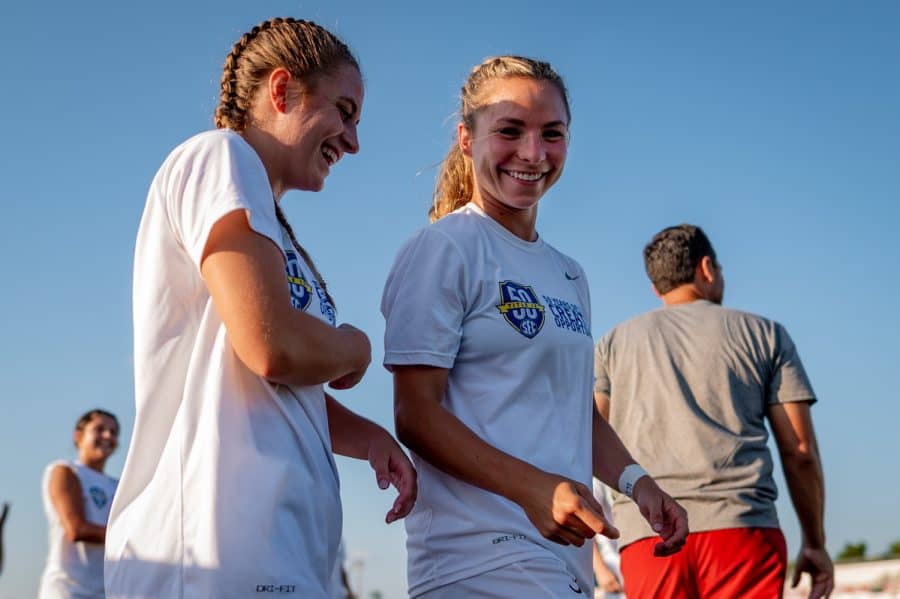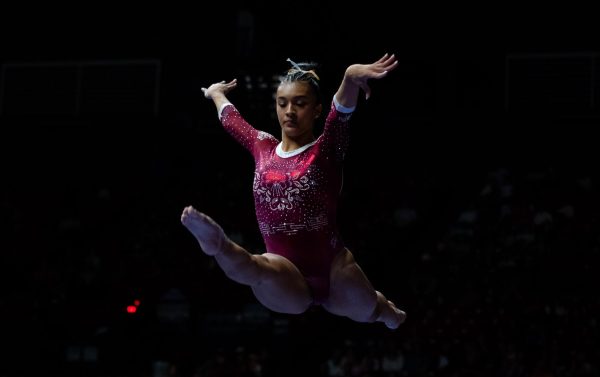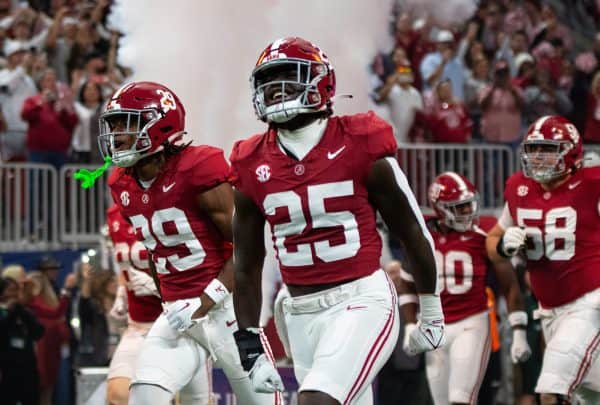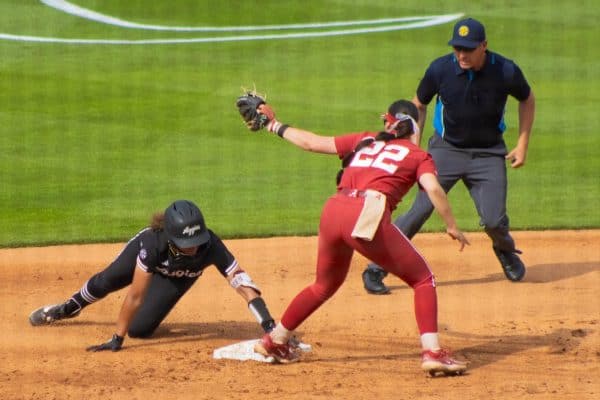Title IX and its 50-year impact on UA athletics
February 2, 2023
When she first stepped on The University of Alabama’s campus in 1998, Jenny Mainz was the only female women’s tennis head coach in the SEC and one of only two female head coaches at the University alongside gymnastics coach Sarah Patterson.
It took 25 years, but now, Mainz is one of five female head coaches in SEC women’s tennis and one of five female head coaches at The University of Alabama.
“There’s no question that Title IX was the light behind this,” Mainz said.
Title IX has been changing women’s sports for more than 50 years now. The legislation, which was passed as a part of the Education Amendments of 1972, prevents sex-based discrimination in federally funded programs, such as collegiate athletic programs. In other words, the law made it illegal to treat male athletes better than their female counterparts, and vice-versa.
While Title IX today doesn’t create waves as big as it did in the ‘70s, its impact still ripples through the collegiate sports landscape and ensures equity for all.
Mainz said in her 25 years as a UA coach, she has seen Title IX take root in the Alabama athletics department.
“I think Greg Byrne, our athletic director, has been instrumental in that growth, in that movement to hire women in those leadership positions,” Mainz said. “It’s exciting because what happens is that a lot of young girls and a lot of young women look and think that they want to do that too.”
According to the National Women’s Law Center, less than 32,000 college athletes were women before the passage of Title IX. In 2020, that number was over 200,000. Numbers from College Factual indicate that just over 400 are UA athletes.
Mainz said that seeing women in prominent roles is crucial for girls who want to continue their athletic careers.
“There are so many women who went before us who made big-time courageous decisions to fight for Title IX,” Mainz said. “It’s a movement. You look back at Wilma Rudolph, Althea Gibson and Billie Jean King. They are the iconic athletes that were fighting for equal opportunity and participation. We’re certainly heading in the right direction but ultimately the message needs to be that we’re not done.”
To celebrate the 50th anniversary of the legislation, the University’s athletic department has sponsored a series of Title IX events, many of which are matches during a female sport’s season.
Last fall, the Alabama volleyball program held its Title IX match on Sept. 25 against Auburn, and head coach Rashinda Reed invited one of her predecessors, Judy Green, to celebrate.
“[Green] was a coach here when I was a player at Georgia,” Reed said in September 2022. “Alabama was amazing and she was one of the trailblazers for women in sport, in volleyball.”
Green was Alabama volleyball’s head coach from 1996-2010 and a phenomenal athlete in the 1980s, when the nation was still figuring out what Title IX entailed. As a three-sport college athlete, she paved the way for women who wanted to take advantage of every opportunity sports offered them.
Reed said that it was the perfect chance for her team to learn about how female sports have changed over the years.
“It’s important for our ladies to know the history of Alabama sports and they understand that there are people before you who have made this situation what it is,” Reed said. “I thought it was a beautiful moment for Judy to come back and have people here supporting her and then have our players see that there’s history right here.”
It’s tempting to celebrate the legislation’s 50th anniversary and then put it back on the trophy shelf, but its importance is just as relevant in today’s college sports atmosphere.
As a member of the volleyball team, middle blocker Alyiah Wells recognizes the role of Title IX in her collegiate career, even though the legislation passed decades before she was born.
“It’s extremely important,” Wells said. “We have a good Title IX department. They try to make sure we’re all aware of what’s accessible to us in regards to Title IX, if we have any questions or if we need any help.”
In today’s college sports environment, the main focus of Title IX is making sure every athlete has the same opportunity. A laundry list of Title IX benefits is used to objectively evaluate athletes’ resources, such as their equipment, facilities, opportunities for tutoring and more.
“I think in terms of equity, Alabama does a good job making sure everything is equally balanced out,” Wells said. “We just got our court updated and I feel like they definitely take it into consideration if we feel like we aren’t getting as much as a male sport.”
With hundreds of student-athletes, the University has a lot to consider to stay Title IX compliant.
This is where Karin Lee, the Title IX coordinator and chief diversity officer of athletics, steps in.
Lee recently conducted a Title IX review via a third party to determine what areas of the athletics department need to be updated.
“From [the review] I can develop the action plan for Title IX: What does compliance look like at UA?” Lee said. “Especially when it comes to the laundry list. The laundry list is about 10-12 things [like] travel, academics and making sure that just because you’re on the football team, you’re not getting the tutors over the volleyball student athletes. I go through that list and evaluate whether we’re okay when it comes to all the different aspects of the laundry list.”
Lee not only analyzes the finances dedicated to each sport program but also the number of athletes involved in each program. She ensures that the University stays compliant with any of the three prongs of Title IX, although some are more realistic than others.
“I always tell people there’s no such thing as equal. You’re never going to have 100 men and 100 women,” Lee said. “However, we need to have an equitability factor.”
Lee said that when institutions are faced with the possibility of eliminating a sport, this balance between equal opportunities for all athletes and finances becomes tricky.
“I don’t know if it’s a Title IX problem or a funding problem, where people need to learn how to fund the right way, so we don’t have to have these conversations,” Lee said. “A lot of universities and colleges are struggling because they’re trying to make sure they can provide a great experience to the student athletes who are there but also trying to stay afloat.”
Thankfully, Lee doesn’t predict the University will have to make that decision any time soon. She said she thinks that every program is treated equally.
In the world of tennis, Mainz said she agrees.
“A lot of people will say Alabama’s a football school,” Mainz said. “I say it’s a women’s tennis school. The belief behind that is that [Alabama] has always treated me and our program with respect, dignity and class.”
Title IX’s 50-year roots reach far and deep into UA athletic programs, and its impact continues to ensure that every athlete receives the opportunity to become legendary.











